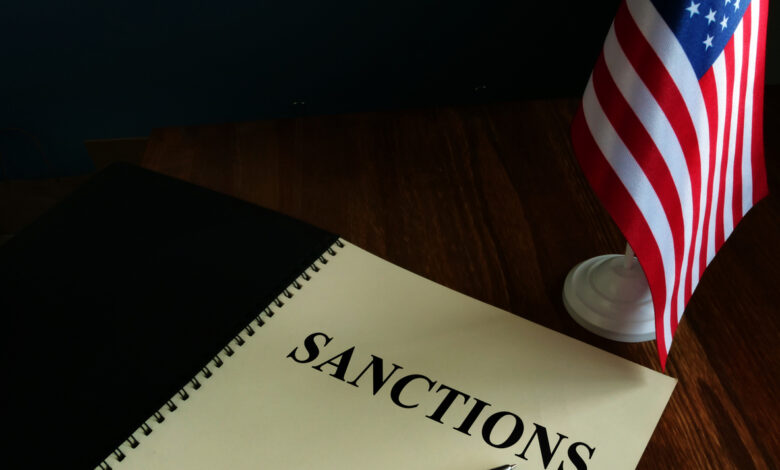The Financialization of Warfare

This week, the United States and our NATO allies have been undertaking a diplomatic push to prevent Russia from further invading Ukraine. While those talks were ongoing, the United States was finalizing a variety of financial and export sanctions that it would impose if Russia moves its troops across the Ukrainian border. Elsewhere in eastern Europe this week, Taiwan agreed to launch a one billion dollar loan program to support Lithuania. Lithuania needed the support because, after allowing Taiwan to open a de facto embassy in its capital, China stopped importing goods from Lithuania and is putting pressure on European companies to stop using Lithuanian components. These two events may seem on the surface to be entirely separate but they point to an emerging area of international conflict, the global economy.
Using economics as a tool to put pressure on adversaries is nothing new. In 1807, the United States embargoed goods from the United Kingdom because its navy was harassing American ships and forcing their crews to fight for the British crown. Of course, country-wide sanctions like embargos are a blunt instrument and can cause significant negative impacts to the average citizen of a sanctioned nation. In the modern era, sanctions have become much more targeted. America places sanctions on individuals and transnational organizations preventing travel and freezing foreign assets among other penalties. With these more precise economic tools, the use of sanctions has exploded. In the past 20 years, the Treasury Department reports that the United States has expanded its use of sanctions by over 900%. In 2021, America had 9,421 different sanctions in place.
So why is this becoming a bigger issue now? First, America is no longer the only superpower in town. During the same period when the US was ramping up its use of sanctions, China’s economy grew by more than 1,300%. This is giving them wide latitude to bully countries like Lithuania. China’s informal boycott of Lithuanian goods has cost European companies millions of euros. Taiwan is stepping in to try and fill this gap with the newly minted loan scheme because the Lithuanian government may be cracking under the pressure. China has also used its economic heft against the United States by imposing tariffs during Trump’s trade war and using market access as a tool to prevent companies from speaking out on its human rights abuses.
Second, the internet has fundamentally changed how the international economy works. Quick and costless communication has extended fragile supply chains around the globe allowing for coordination between a variety of actors which may have never interacted before. This fragility is making headlines today because snarls in the supply chain due to the pandemic are driving inflation up. However, this fragility could also become weaponized if China or the United States places sanctions on countries or components that have outsized influence in the supply chain. One of the proposed sanctions of Russia for invading Ukraine would be for the United States to functionally prevent semiconductors from being exported to Russia because certain components are U.S. designed.
In addition to extending supply chains, the internet has been the basis of the creation of cryptocurrencies which have been used by criminal organizations for money laundering and illicit transactions. Petty criminals are not the only groups getting in on the action. El Salvador recently announced that they would be the first country to use Bitcoin as a legal tender. Now this could just be a stunt from a millennial dictator to attract cyrptobros or it could be a hedge against U.S. sanctions that are beginning to bite.
Finally, this is a bigger concern now because we could be reaching a tipping point. One of the proposed sanctions against Russia for an invasion of Ukraine is kicking Russia off of SWIFT. SWIFT is a Belgian group which serves as a clearinghouse for interactions between banks globally. In 2012, America pressured SWIFT to stop interactions with Iranian banks. Under the JCPOA many of these banks were reconnected to the system but a concern is that the more the United States reaches for this tool, the greater chance that another actor outside of America’s reach could fill the gap and begin to form an anti-American clearinghouse for states pushed out of the international economy. Just as China is putting pressure on German companies to stop using Lithuanian components, kicking Russia off SWIFT would have knock on effects for our allies. Europeans who rely on Russian gas to heat their homes during winter could find costs skyrocketing as converting Euros to Rubles would become much more difficult. If a Chinese firm were to step into the gap, then the global market may be in for turbulent times.
Financialized conflict might be better than the kinetic kind with impact measured in dollars and cents rather than blood and body bags but that does not make it any less real. As America increasingly relies on sanctions as a tool for enforcing its will across the globe and China begins to throw its weight around, more attention is needed by the national security community to understand the efficacy and unintended consequences of economic conflict.

